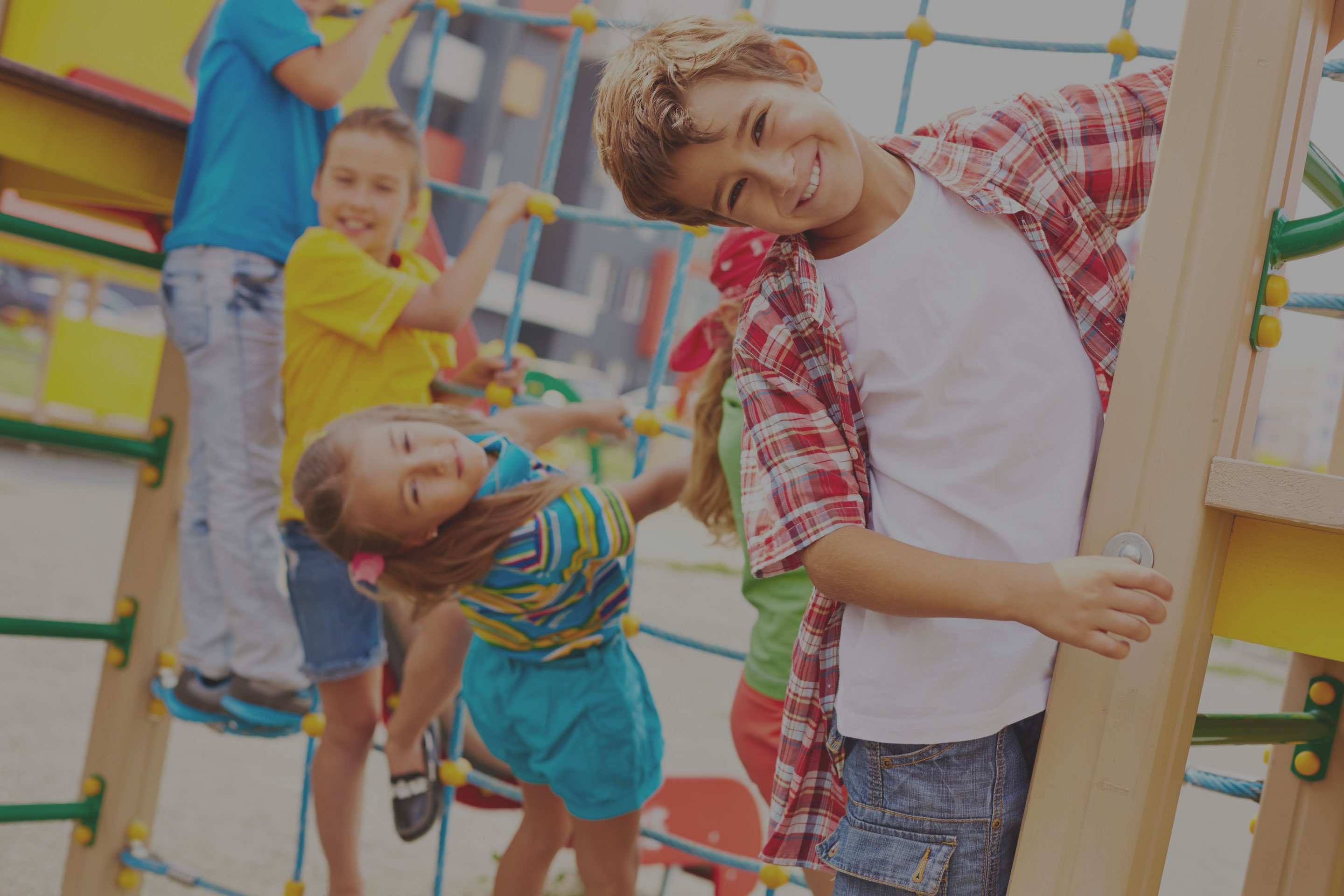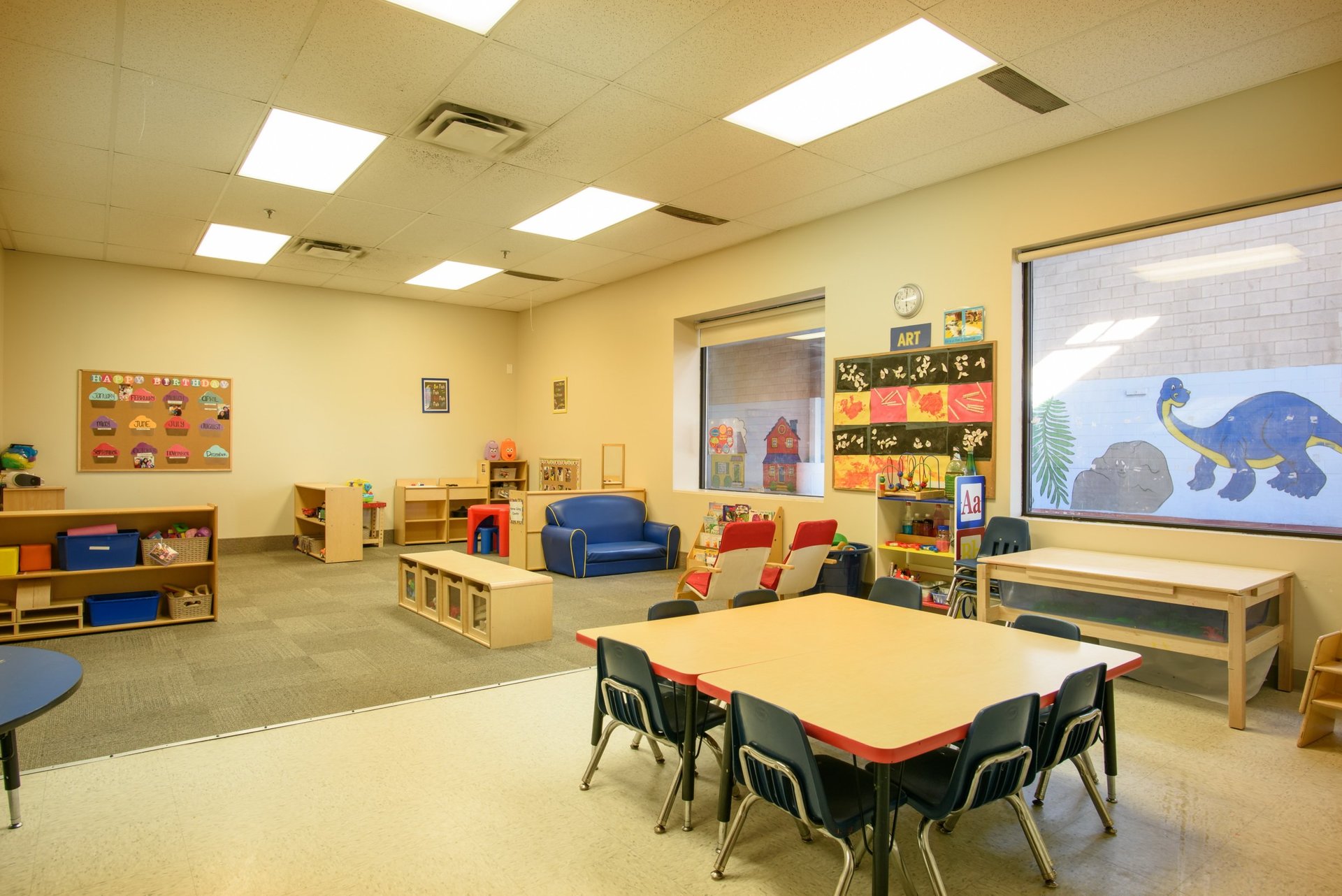Minimize First Day of Kindergarten Jitters
Minimize First Day of Kindergarten Jitters
Minimize First Day of Kindergarten Jitters – By Susie Beghin
Every September a new wave of children is introduced to the Kindergarten classroom. This transition from home or daycare to the elementary school system can be easy and seamless when you take the right steps. There are many things parent and the daycare professionals can do to help ease the transition.
Preparedness for Kindergarten is not about the knowledge your child has—whether they can read, or even if they know their letters or numbers—it’s about how much independence and confidence they have and how well socialized they are. These key skills play a role in how well they might adapt to the classroom. Helping your child develop these characteristics can be accomplished at home and daycare leading up to the first day of school. But how can parents and caregivers do this?
At Alpha’s Discovery Kids we provide our families with a readiness checklist, but parents can develop their own, based on their child’s needs and abilities. There is a consensus amongst experts of five key things you can do to prepare your child for this important life event.
1. Encourage Self-Care
• Teach self-help skills like dressing—learning zippers and buttons, shoes and boots, coats, mittens.
• Teach them how to put things into, and take them out of, a backpack, and how to use all types of lunch containers. Teach them to tidy up their things and keep track of their belongings.
• Ensure your child is capable when addressing their bathroom needs. In Kindergarten they will not get assistance, and this could result in a child being sent home.
2. Follow regular routines
• Make sure there is a consistent bed time that provides your child with enough sleep to ensure they are attentive and productive in the classroom. In general, the consensus is 10 hours a night for Kindergarten-aged child.
• A regular morning routine is also critical. It is recommended you get your child used to waking up at the same time every day, getting dressed and eating breakfast, all with plenty of time before they have to be ready to leave for school without being rushed.
• Build free play time into your daily schedule, both with parent involvement and without. Individual playtime helps develop creativity and allows the child time to decompress without any expectations or influence from others.
• Part of having a routine is having a schedule and keeping it. At home it would be easy to give in if your child wants to dawdle through lunch. A school schedule is much more rigid, and if 30 minutes is allotted for eating, then that’s what they will get. Teach your child to transition from one activity to another when it is time. Continue reading “Minimize First Day of Kindergarten Jitters” below.
3. Encourage Socialization
• Register your kids in parent-free activities. Art classes, dance, and sports are all excellent opportunities to create a sense of independence and comfort. They will learn that their caregivers will always come back for them.
• Participation in team sports is a great way for children to learn cooperation and teamwork, which will really help them in a school setting, both in the classroom and on the playground.
• Children who regularly attend preschool and daycare are automatically socialized due to their group environment and don’t really need other types of group activities until Kindergarten.
4. Develop healthy habits
• Eat healthy foods. Teach your children about the difference between healthy food and treats (sometimes food).
• Start the day off with a healthy breakfast to make your child is alert and ready for learning.
• Drink lots of water to keep the brain and body hydrated to optimize learning. Keep fruit juice as a sometimes food, and minimize soda consumption as much as possible.
• Get plenty of sleep. Experts recommend 10 hours of sleep a night, but if your child needs a nap to recharge when they get home from Kindergarten, especially in the early months, don’t discourage them. If the nap interferes with their ability to get to sleep at night, limit the length of the nap.
• Make sure your child has regular physical examinations and is up to date with their immunizations. Remember, many school systems will suspend attendance if the immunization record is not up to date.
5. Talk to your child about Kindergarten
• Visit the school. Take advantage of all events offered that allow you to bring your child to the school—open houses, Meet the Teacher events, and orientation sessions.
• Travel the route your child will be taking to school, whether they’re walking, driving, or taking the school bus. If you’re walking, learn how long it will take you to get to school, and plan that into your routine. Give your child the opportunity in advance to look at all the interesting things along the route so they will be less distracted when school actually starts. If taking the school bus, drive the route with them so they can develop familiarity with their surroundings and will be able to recognize landmarks when they are nearing their bus stop. Talk about school bus safety—staying seated when the bus is moving, keeping track of their belongings, and only leaving the bus stop with their designated caregiver.
• Take them to the school to play in the playground. Learn some playground games like hopscotch or Four Square so they will not feel lost or overwhelmed during those first few recesses.
• There are some really good books you can borrow from your local library that explore the kindergarten transition. Read them with your child and encourage them to ask questions.
Parents also have expectations of their child when entering Kindergarten, but it’s important to remember that all children reach milestones at different times and not to measure your child against anyone else. It doesn’t matter if your 4 year old can’t read yet. Work with them at home to support their preschool’s efforts, learning letters, numbers, colours, and shapes.
Whether a child has stayed home with parents or other caregivers or has attended a daycare or preschool, there are steps you can take to lessen your child’s anxieties related to starting school. Following these suggestions will help ease the transition into the structured, often overwhelming world of kindergarten. With love and support, everything will be fine for everyone involved.
Thanks for reading: Minimize First Day Of Kindergarten Jitters
Thanks for reading: Minimize First Day of Kindergarten Jitters
Daycare in Mississauga: The Do’s and Don’ts of Dropping off your Child
Dropping Off Your Child At Daycare
Dropping Off Your Child At Daycare – It’s almost time to head back to school or daycare in Mississauga for many kids who have been at home with their parents. Some kids may be experiencing separation from their parents for the first time. Many parents struggle with the separation of an anxious child when dropping off at school or daycare. You may be worried and heartbroken when you see them crying right when it’s time for you to leave. You are not alone. At Alpha’s Discovery Kids Preschool and Daycare in Mississauga, we have seen this many times and we can help you make the transition from home to preschool or daycare as smooth as possible.
- DO – Say goodbye to your child and give them a hug and kiss. Let them know you love them and you will be back.
- DO – explain that you will be back after a certain activity such as (after outside time) or (when they wake up from nap time) etc. it’s good to make a plan so the child can relate the time of day you will return.
- DO – make a plan for a special activity you will do with them after you pick them up and stick to it. It could be something simple like reading a favorite book together or playing a favorite game or going to the park. This serves as a great distraction that the teacher can talk about after you leave.
- DO – remind them that they will have fun and show them some of the fun stuff they will do.
- DON’T – sneak out when they are not looking. This never works and usually leaves the child more anxious and fearful.
- DON’T – look scared and sad to leave your child. Your child is looking at you and needs to know that they are safe and there is nothing for them to worry about. This may take a bit of acting on your part, especially if it is your first child and they are separating for the first time.
- DON’T – linger or watch by the door or window. Make your goodbye brief and don’t stay too long. It’s better for you to leave and let the child start the process of becoming independent. I can assure you that the longer you stay, the longer the child will cry.
- DO – Call the preschool or daycare and check on your child. You will feel better when you know your child has calmed down. They eventually calm down and get distracted by all the fun they are going to have.
- DO – understand that a transition takes times and your child will not adjust right away. They need time to get used to a new teacher and a new environment. Some children can adapt quickly while others need more time – sometimes weeks or months. Each child is unique but they will eventually make the adjustment.
We know it is difficult to walk away when your child is in tears, but if you follow these do’s and don’ts, we can almost guarantee that the child you pick up will be smiling, happy, and excited to tell you about their day at school. And remember that you are teaching independence and that is an important skill for life!
Fall Preschool BBQ and Open House
Preschool Open House
Preschool Open House – Join us on Saturday, September 30th for our “Fall” BBQ and Open House and learn about our play-based educational curriculum. We offer quality care for children from 12 months-5 years old. We have full-time and part-time programs as well as nursery school programs. Our academic program includes Jolly Phonics, Math, Science, Music Read more ›
Cooking with Kids
Cooking with Kids
Cooking with Kids – The foodie revolution is in full swing—but why should grown-ups have all the fun? From cooking shows starring “junior” chefs to kitchen toys, kids are discovering the culinary arts…and having a blast doing it! Read more ›
The Power of Positivity when Communicating with Kids
Communicating With Kids
“STOP DOING THAT!” “YOU DON’T LISTEN!” “I CAN’T BELIEVE YOU RIGHT NOW!” Some of the things that we as parents say to our children when we are frustrated or upset with them can affect their self-esteem and their opinion of you. Our words are so powerful so we as parents and educators must choose them wisely and try to use positive language as much as possible. Read more ›
Physical Literacy – what is it?
What is Physical Literacy?
Physical Literacy sounds like reading a story while doing a cartwheel; however, it is a term that is both critical to learn and vital for early development for our children. So what is Physical Literacy? Read more ›
We love you too but when it’s time to hit the road……..Alpha’s Awesome Road Trip Tips!
Everyone needs a little holiday now and again and while Alpha’s Preschool Academy loves every member of our toddler, preschool and daycare programs, we know it’s important for families to spend time together too. Often, this means a summer road trip. (Insert groan here, LOL!) If it’s time for your family to take a little road trip adventure vacation, whether to Grandma’s house or Gander, Newfoundland, we’ve got you covered with some helpful travel tips tailor made for children of all ages! Read more ›
Sunscreen and your Child: Everything you ever needed to know – and stuff you didn’t even know you needed to know!
Kids Sunscreen
Right about now you are probably expressing a huge sigh of relief that winter is well behind us and summer fun has begun. Gone are the days of rushing out the door after first bundling them up in coats, boots, hats, mittens and scarves. Some mornings, we’re sure you already felt like you’d run a half marathon, just getting your child safely to daycare and pre-school! Now it’s just shorts, t-shirts and a fight over flip-flops or sandals. Easy-peasy! Or is it? The truth is summer can be just as time-consuming when you factor in the SPF factor. Read more ›
Spring Open House – Daycare and Preschool April 29th 2017
Preschool Open House
Preschool Open House – Join us on Sat April 29th for our preschool and daycare Spring Open House in Mississauga!
Saturday April 29th
10 am – 2 pm Read more ›
What Parents Should Know Before Starting Daycare or Preschool
Before Starting Daycare
Before Starting Daycare – Putting your child into a daycare or preschool for the first time is difficult for many parents. Parents don’t usually know what to expect. Here’s some things you should know before your child starts to help to make that transition go smoothly. Read more ›








